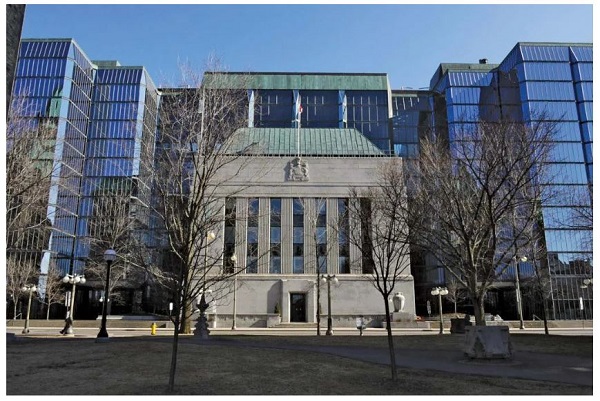Bank of Canada holds key interest rate at 4.5%. Grocery store CEOs questioned on food prices at Commons committee

TORONTO – After a year of continuous hikes, the “key” interest rate finally stops. In fact, today the Bank of Canada decided to keep it unchanged, while clarifying that it is still ready to raise rates further depending on how the intensity and the economy progress. In any case, for now the official rate of the Canadian central bank remains at 4.5%.
The stop comes after eight consecutive hikes took the key rate from 0.25% in March 2022 to the current rate – a move justified by the Bank of Canada as an attempt to contain rampant membership. Now that the annual rating in Canada has dropped from a peak of 8.1% in mid-2022 to 5.9% in January 2023, let’s take a breather.
According to the central bank, the current high interest rates are “working” to discourage household spending, slow down the economy and thus reduce inflationary pressures. However, the central bank itself adds that there are risks to the forward outlook that could increase price pressures again and justify another interest rate hike in the near future. There are many variables to keep an eye on: the country’s “very tight” labor market and “surprisingly strong” employment growth are a significant source of uncertainty for uncertainty forecasts; global factors such as the war in Ukraine and the recovery of economic growth in China could in turn push the increase further.
What is certain, however, is the continuous increase in food prices, which continue to rise despite the slowdown in humidity growth. Today, the awaited discussion between the MPs of the House of Commons in Ottawa and the CEOs and presidents of the large food distribution chains took place on this issue.
The leaders of Loblaw Cos. Ltd., Metro Inc. and Empire Co. Ltd. – which operates chains including Sobeys, Safeway and FreshCo – were heard by House of Commons Agriculture Committee MPs, to complement the ongoing study on food inflation: as consumers are well aware, in fact, while overall inflation has shown signs of cooling in recent months, the prices of food purchased in supermarkets have increased again up to 11.4% in January, according to Statistics Canada.
Many factors have been blamed for the surge, from fragile supply chains to sharply higher prices of commodities such as wheat and oil, largely caused by the Russian invasion of Ukraine in early 2022. But as the impact of these factors diminished over time, major food companies found themselves under increasing scrutiny as their profits skyrocketed. Collectively, the three food giants mentioned above made more than $2 billion in profits in the last fiscal year.
Executives at those chains have consistently claimed the profit allegations are unfounded, pointing out that while their overall sales are indeed higher, their profit margins — or the amount they make on each purchase — are about the same. level as always, i.e. “in low single digits”. Today’s hearing (which is still ongoing as we write) was convened to allow Members of Parliament to question the chain bosses directly about the veracity of such claims.



